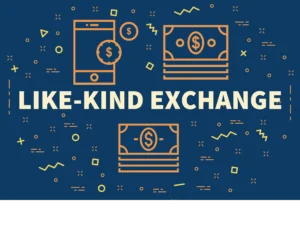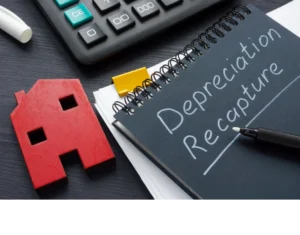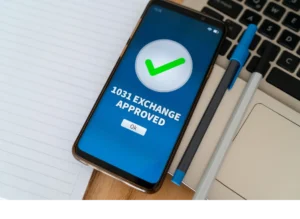Tax on Rental Income: Property Ownership Guide
Guide to Tax on Rental Income
If you have a condo or a house that you wish to rent, you might also want to update yourself about the tax on rental income. Yes, you heard us right. Income taxes are charged on rental properties.
The good news: you are not taxed the entire amount of rental income earned. In fact, expenditures used to maintain the rental property can be subtracted from your rental income total, causing you to pay less in taxes.
How is rental income taxed? Read on to find out.
What Qualifies as Rental Income
Your rental income tax rate depends on the number of rental properties and the total rent amount you receive. The term ‘rental income’ refers to all the payments that you are getting in return for leasing your properties.
Your rental property income tax is based on monthly rental earnings as well as:
Advance Rent
A lot of people receive rent that is paid in advance for the next year, even before completing the renting period. This amount that you receive will be included in your rental property tax. You will not include this amount in the next year’s rent, as you received it in advance.
Security Deposits
These are the payments usually made at the time of sealing a rental deal. This amount acts as a security for any damage that tenants would cause to your property. It will only be included in your rental property income if you do not intend to return the amount to the tenants by the end of their renting period. If you do plan to return it to them, then it will not be considered as your income.
Cancellation Charges/Payment
These are the charges incurred by the to-be-tenant who cancelled the lease agreement and, therefore, is making up by paying you a certain amount. This is considered as taxable rental income.
Besides these, the expenses paid by your tenants, any property given by your tenants instead of monetary payment as rent, and any other amount of interest charged will all be considered as rent. And this amount received taxable rental income, as well.
Rental Income Deductions

Expenses incurred during the rental period will decrease the amount of your tax liability. You can also deduct any amount that you need to use as mortgage interest for the properties, along with any cost that you had to pay for repairing and maintenance of the rented property.
Taxpayers often ask questions like, “how much tax do I pay on rental income?”
To answer this, here is a list of deductions:
- Ordinary expenses for the management of rented property.
- Necessary expenses like advertising and utilities.
- All expenses made to maintain the quality of your property. For instance, painting for the house, electronics installation, etc.
- Restoration and adaptation of things needed by the tenant.
- A percentage of depreciation costs for existing home items can also be deducted from the rental income. For example, home appliances that depreciate over time can be deducted.
What You Cannot Deduct
As a rental property owner, you may want to take the time to add the comforts of home, even though you may not reside there. In other words, you may spruce up the home through renovation or rehabilitation. These changes can potentially better accommodate future tenants and add overall value to the property.
But, the costs for these improvements are not cheap. And, unfortunately, they are not considered as tax deductible. Instead, they are discretionary expenses — not rental expenses.
However, you can recoup some if not all of the cost for these improvements by filing with the Form 4562.
When to Report Rental Income
Tax on rental income is applicable only on the rental income received that year. For instance, if you have given your property on rent in 2021, but have received your rent for the entire year in advance in 2020, then this rental income will be taxed in 2020.
Here is how you can report your rental incomes in your tax returns:
- If you have received rent from your tenant for the month January 2021, in the month November 2020, then you will report this rental income in the year 2020 even though the rent paid is for the year 2021. As it will be included in the year 2020, this rental income will not be calculated in your rental incomes for 2021.
- If your tenant has given you a good or a service as a payment in place of monetary rent, then you must calculate the values of these goods and services, which will then be considered as your rental income. Tax will be applied according to the value of these products.
- Suppose your tenant paid you the rent for the next year in an envelope and you did not open that envelope until next year. This amount must be reported as rental income for the year it was received even if you have not opened the envelope.
How to Report Rental Income
When renting properties, such as buildings, apartments, or houses, you are bound to report these incomes through the form 1040 or 1040-SR, Schedule E, Part I. You can make a list of all your revenue, including all your expenses on the form and deduct the depreciation values of your properties. Therefore, the correct amount of payable rental tax can be calculated and collected.
If you have more than three rental properties, you will be required to fill a Schedule E for each property. This will ensure that the departments have enough knowledge about your existing properties and their rentals. You need to fill in the lines 1 and 2 on this form accurately for each property that you own and have rented. Your address must include the street address for each property. While these details must be filled on the main form, the total amount of your present properties under rent must be mentioned on Schedules E.
Depending on your rental expenses, if your rental income is less than the rental expenses, your loss might be minimized as most of your rental income is being utilized as expenses. The deduction of these losses can be understood better by accessing the loss rules and at risk rules for a rental tax payer. Read through Form 8582 and Form 6198 to evaluate if your loss is considered limited or not.
According to the Publication 527, your rental expenditure and loss can be limited if you yourself are using a part of the rented property for your personal use.
Please keep in mind that you do not have to handle rental taxes alone. There are plenty of tax professionals with extensive experience in reporting rental income for various property owners. Before you consider submitting your tax return, ask a professional for their perspective. They could potentially point out key areas of the form that are missing or highlight information that may lead to a greater tax deduction.
The Importance of Record Keeping
The main concept behind keeping a record of your rental property, rental incomes, and expenditures is to make your life a lot easier. By having all the records ready before submitting and reporting your rental incomes to the authorities is convenient and reduces the chances of reporting errors.
Here is how record keeping can aid you:
Monitor your Rental Incomes
Record keeping can help you monitor your rental incomes closely. You will be able to see how much you are earning as rent and how much is being spent as expenditure whether for personal use or for repair and maintenance.
Keeping it all Sorted
Keeping records of your rental data beforehand helps maintain organization. Not to mention, storing important rental documents in one place prevents the back and forth of collecting information about your old rentals.
Source of Receipt Record
As you have been keeping a record of all your rental transactions, you will be able to find the sources of receipts for different transactions in case you need them in the future for reference purposes.
Keep an Eye on Deductions
Record keeping makes it easier for you to identify your deductible expenses since you have a record in front of you for managing all these details.
Documentary Evidence
Documentary evidence plays a very significant role in helping rental income tax payers. You have documented evidence of the expenditures and, therefore, can justify the deductions accordingly. A good record helps you get better and more appropriate calculations for the expected tax that you need to pay on your rental income.
At American Apartment Owners Association, help landlords with regards to their record keeping for rental income. The best way to keep a record of your rental income and expenditures is to use an online tool like PayRent from AAOA to collect rent online. No more stamps, lockboxes, or trips to the bank for deposits. Your tenants can make their payments from anywhere they have internet access. All of the funds will be deposited directly into your bank account. You’ll have full accounting and tracking of each payment- no more waiting for checks in the mail.













 Accessibility
Accessibility